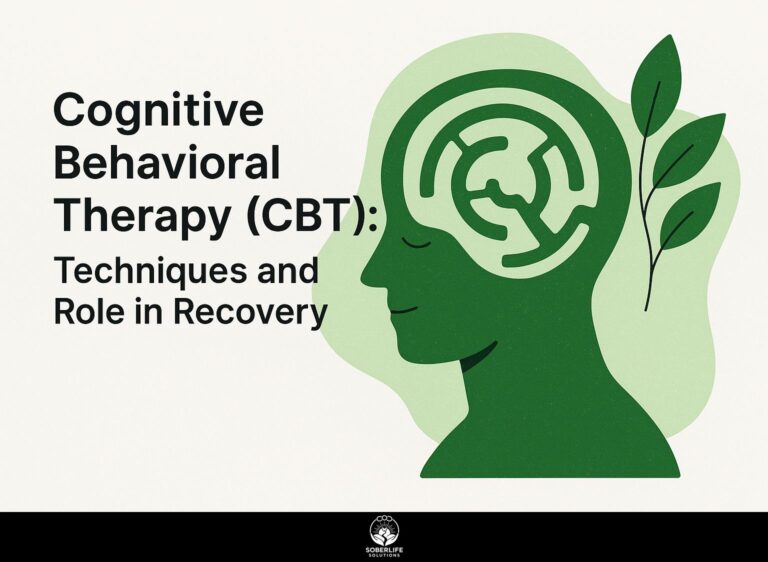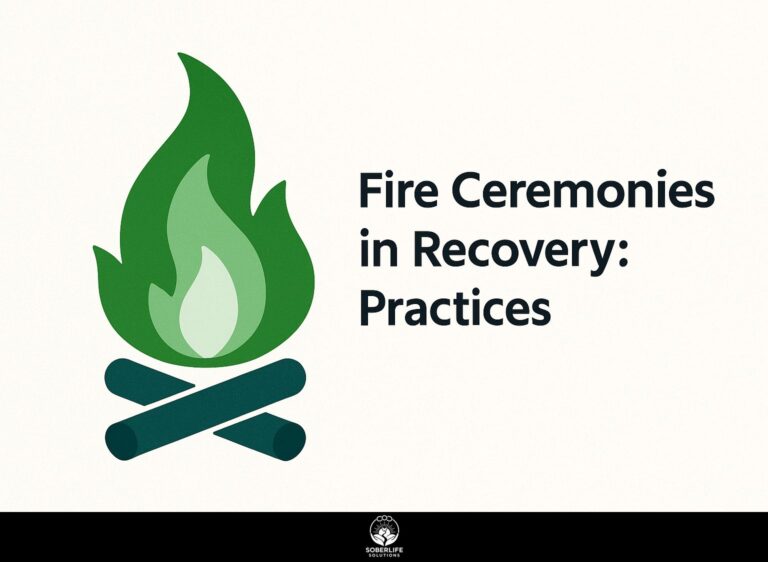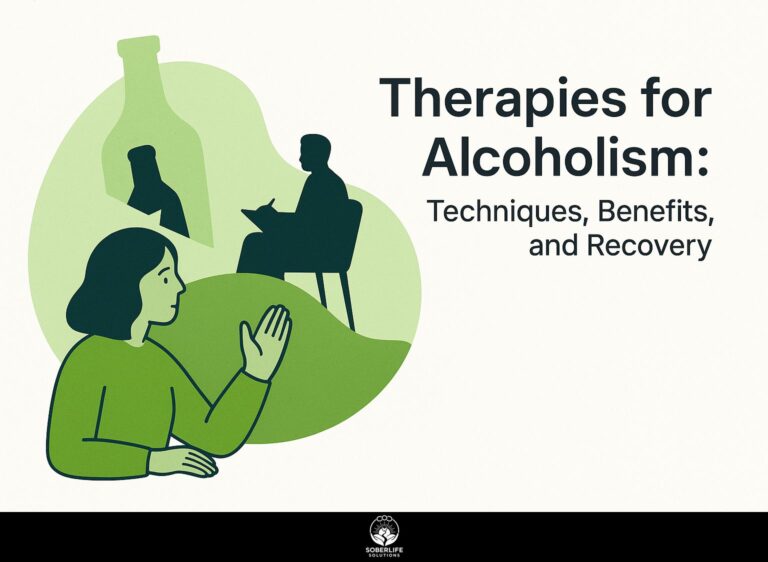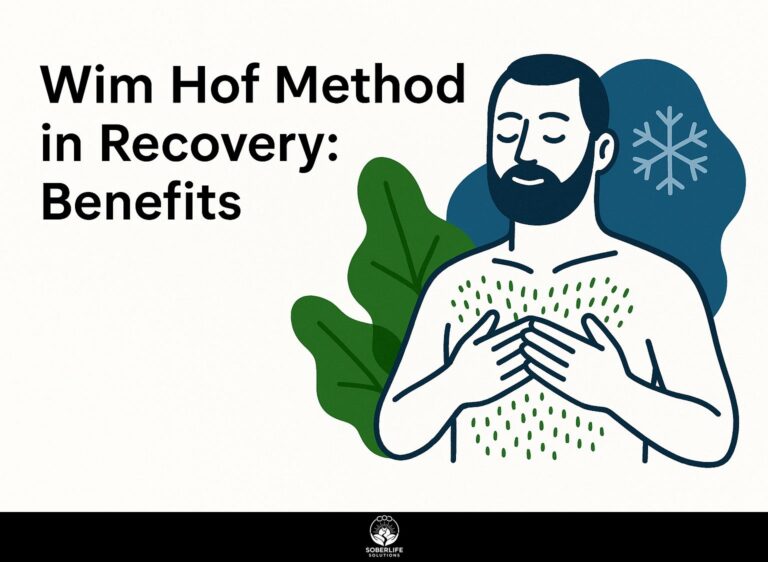Developing Self-Awareness in Addiction Recovery
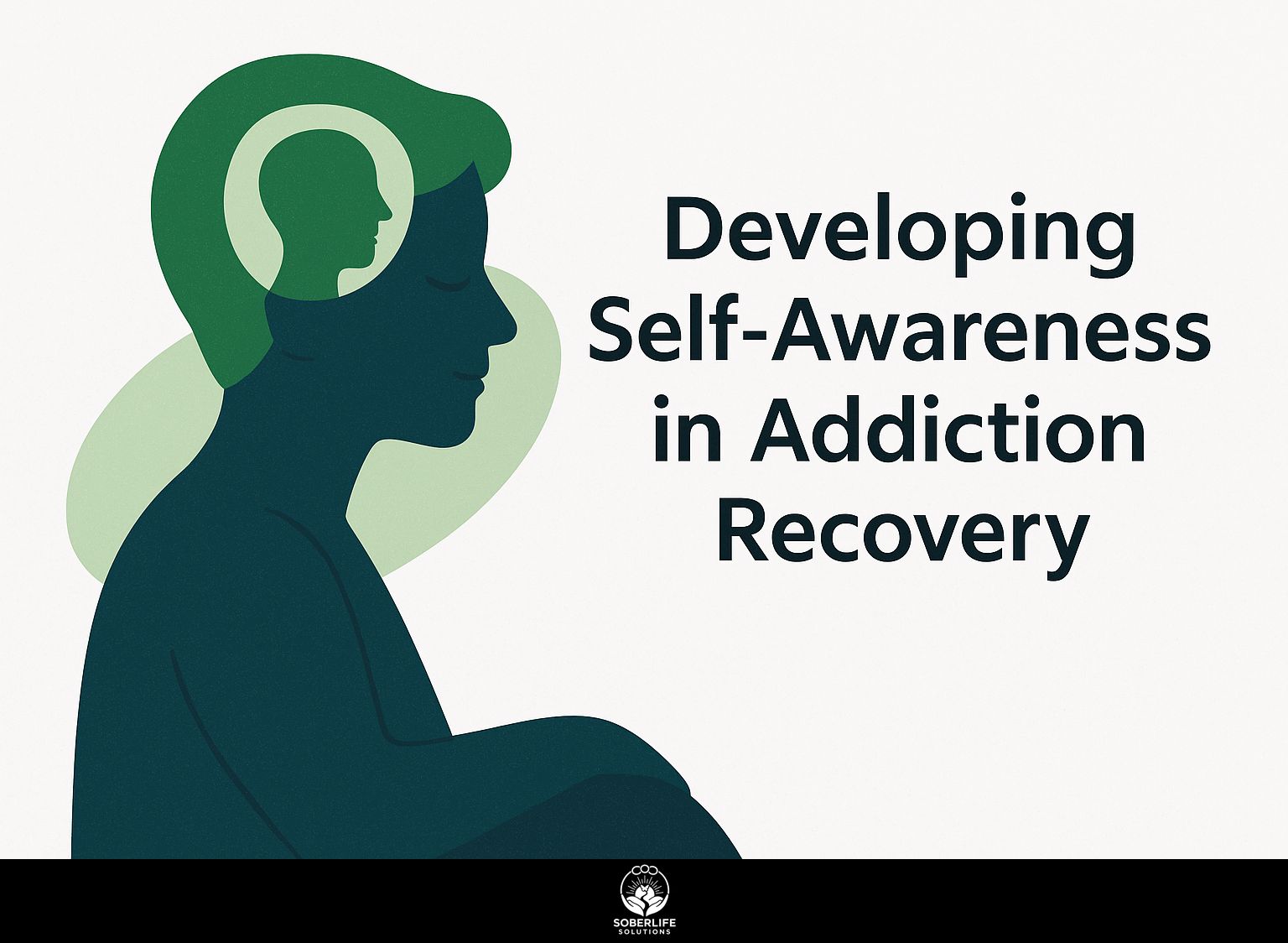
Recognizing one’s own feelings and behaviors is important for overcoming addiction, helping people understand their emotions and how they relate to substance use. Inspired by Ancient Greek culture, which valued self-awareness, we look at how famous figures like Whitney Houston showed the importance of this essential ability. According to CNN, being aware of oneself can greatly improve the healing process. This article offers practical tips and methods to help you become more self-aware, supporting your path to long-term recovery.
Key Takeaways:
Definition and Importance
Self-awareness means noticing your own thoughts, feelings, and actions. This skill helps develop emotional intelligence and improves mental health.
To improve self-awareness, try these practical steps:
- Journaling regularly helps you reflect on your daily experiences and emotions.
- Practicing mindfulness meditation for just 10 minutes daily can help you concentrate better on the present.
- Getting input from reliable friends can show you things about yourself you might not see.
Research suggests that people with greater emotional intelligence are 20% more successful in recovery efforts. This means that being more aware of oneself can help with personal development and greatly improve life satisfaction. According to Frontiers in Psychology, emotional intelligence has a profound impact on mental health and personal satisfaction, underscoring the importance of self-awareness for overall well-being ( Emotional Intelligence, Belongingness, and Mental Health).
Role in Addiction Recovery
Being aware of oneself improves the recovery process by allowing people to recognize and address denial, emotional triggers, and ways of coping.
Research shows that people who are more aware of themselves during addiction recovery have a 30% lower chance of relapsing. This aligns with findings from the Whole Health Library, which emphasize the importance of self-awareness in reducing relapse risk ( Reducing Relapse Risk – Whole Health Library).
Practicing mindfulness meditation can greatly increase self-awareness. Research indicates that people can more easily identify their thoughts and emotions, which makes them less likely to act in harmful ways. Related insight: Managing Stress and Emotions: Healthy Strategies in Recovery.
Journaling is another effective method; by reflecting on daily experiences, individuals can track triggers and identify harmful patterns over time.
Therapies such as Cognitive Behavioral Therapy (CBT) help people become more aware of themselves by giving them tools to challenge negative thoughts and build a healthier way of thinking.
Understanding Addiction
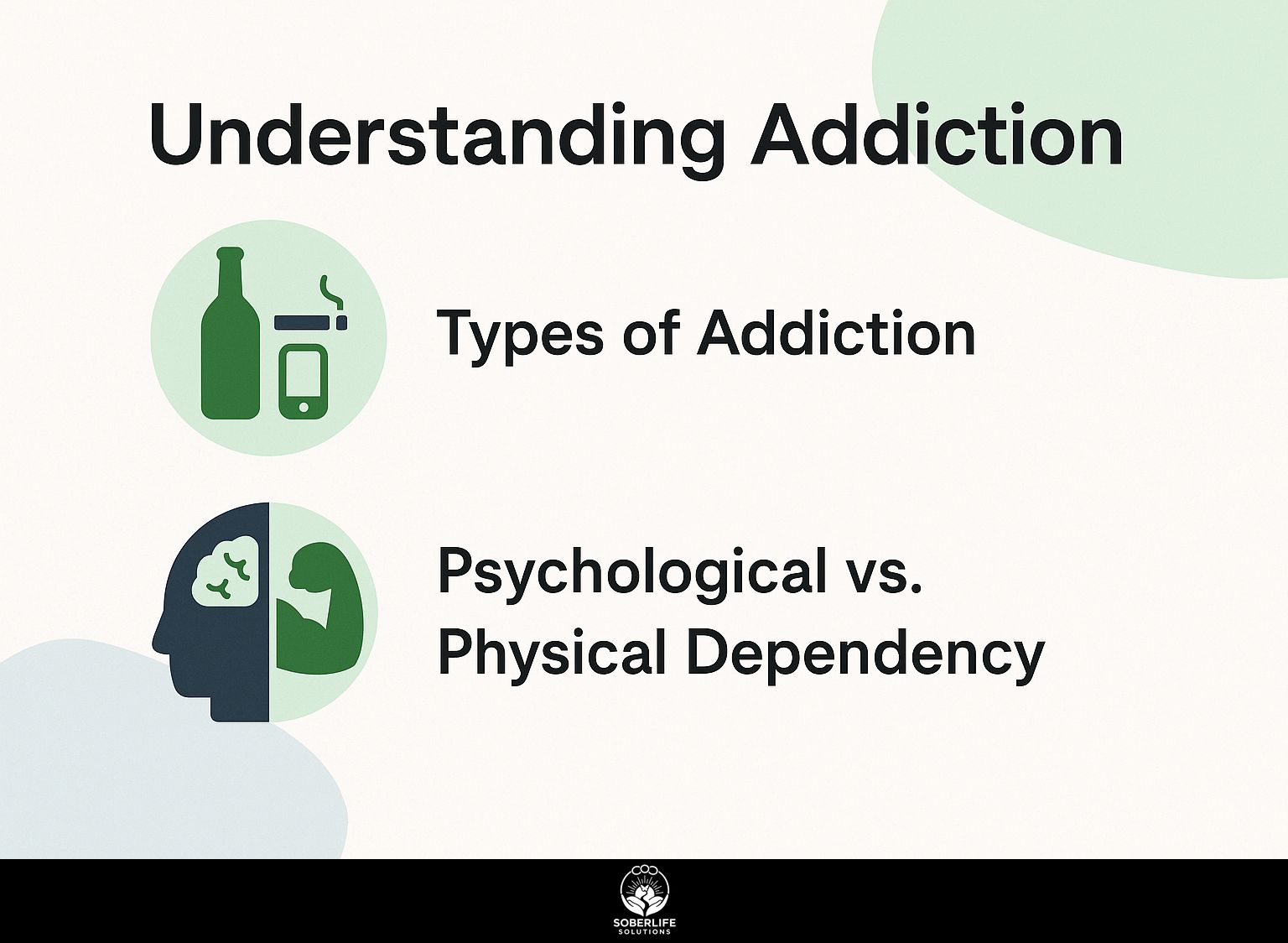
Recognizing the complex nature of addiction is important for creating successful methods for recovery and managing emotions. Those interested in learning more about emotional health will benefit from understanding coping mechanisms for addiction recovery as they are crucial for long-term success.
Types of Addiction
Addiction can appear in different forms, such as drug or alcohol problems, compulsive behaviors, and having both mental health and addiction issues, each needing specific treatment plans.
Substance use disorders often involve dependence on alcohol, opioids, or stimulants, affecting millions in Washington State alone; in fact, over 1.3 million adults in the state reportedly have a substance use disorder.
Behavioral addictions, such as gambling or internet addiction, also pose significant challenges, with approximately 4-6% of adults experiencing gambling addiction annually.
Dual diagnosis-co-occurring mental health disorders and addiction-complicates treatment, necessitating integrated care plans.
Effective treatments may involve therapy, support groups, and medications, highlighting the need for individualized methods in recovery. A comprehensive guide by the Centers for Disease Control and Prevention (CDC) underscores the importance of these individualized treatment approaches.
Psychological vs. Physical Dependency
Recognizing the difference between mental and physical dependency is important for creating successful addiction treatment plans.
Psychological dependency involves emotional or mental reliance on a substance, often manifested through cravings or anxiety when not using it. For instance, individuals might associate social situations with alcohol use, leading to avoidance when sober.
In contrast, physical dependency results in withdrawal symptoms, such as nausea or tremors when the substance is reduced or stopped.
Studies show that around 60% of people in rehabilitation struggle with psychological dependency. Treatments such as cognitive-behavioral therapy and mindfulness are important for dealing with these root problems, which helps improve long-term recovery results.
Self-Reflection Techniques
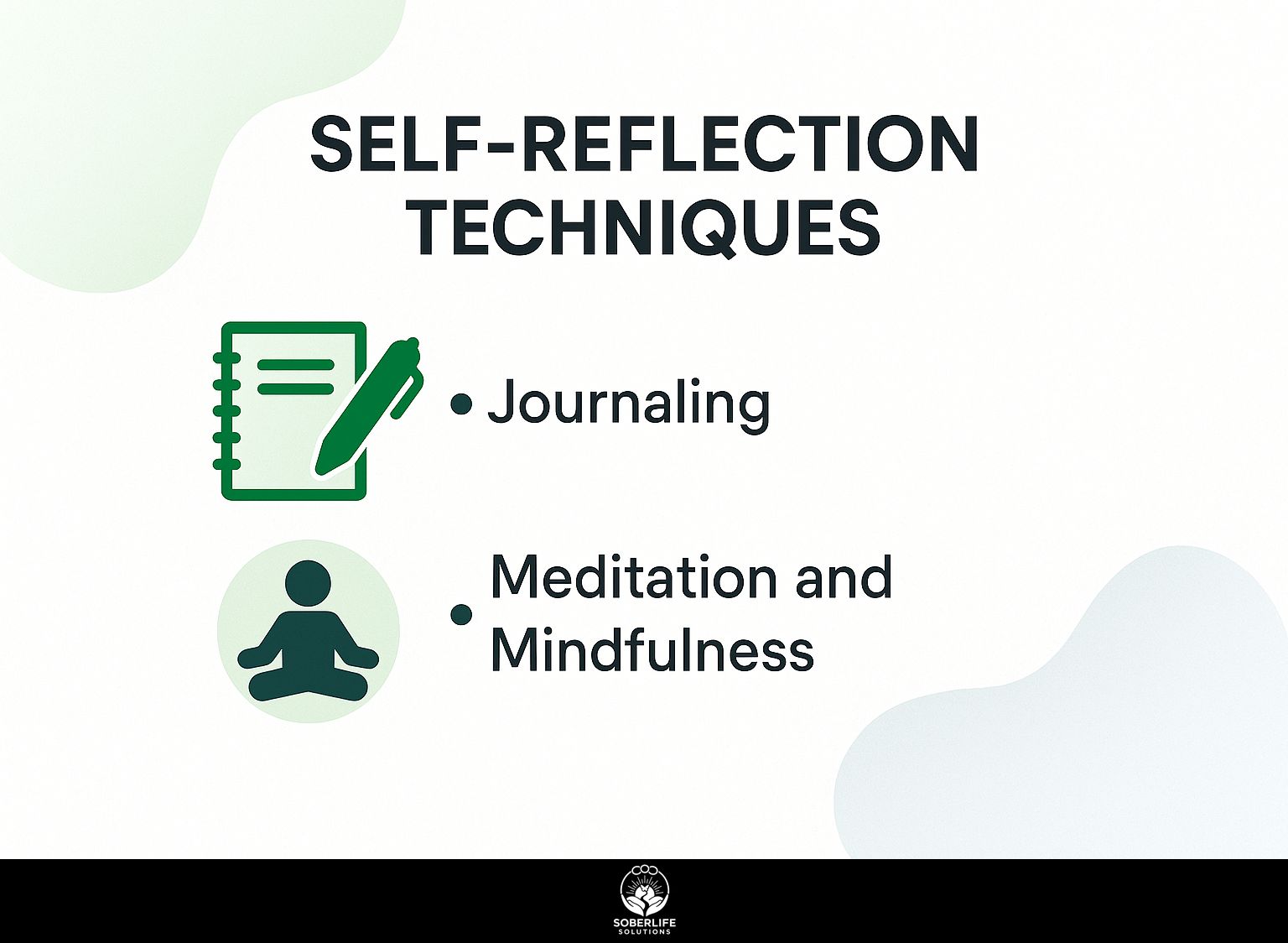
Practicing self-reflection methods can greatly improve self-awareness, providing ways to heal emotionally and recover. For an extensive analysis of how these techniques can enhance emotional healing, our comprehensive guide on overcoming guilt and shame offers insights that delve deeper into the emotional aspects of recovery.
Journaling
Journaling is a powerful tool that supports individuals in recognizing emotional triggers while aiding the recovery process through self-expression.
To maximize the benefits of journaling, consider writing at least three times a week. Try questions like “What made me thankful today?” or “What difficult situations did I encounter?” to encourage thinking.
Using digital apps like Day One can make your experience better with features like adding photos and keeping track of your mood. Journey lets you easily organize your entries and sync them on all your devices.
Establishing a consistent journaling routine can lead to deeper self-awareness and emotional clarity over time.
Meditation and Mindfulness
Mindfulness meditation can greatly help in managing emotions and increasing self-awareness, providing useful ways to handle challenges during recovery.
To start a simple mindfulness meditation practice, find a quiet space where you can sit comfortably for 5-10 minutes.
Close your eyes and focus on your breath, inhaling deeply through your nose and exhaling slowly through your mouth. If your mind wanders, gently return your focus to your breath.
To make your sessions better, try apps like Headspace or Insight Timer. These apps provide guided sessions meant for beginners. Make an effort to practice daily, gradually increasing the time, this can help you feel more relaxed and focused.
Identifying Triggers
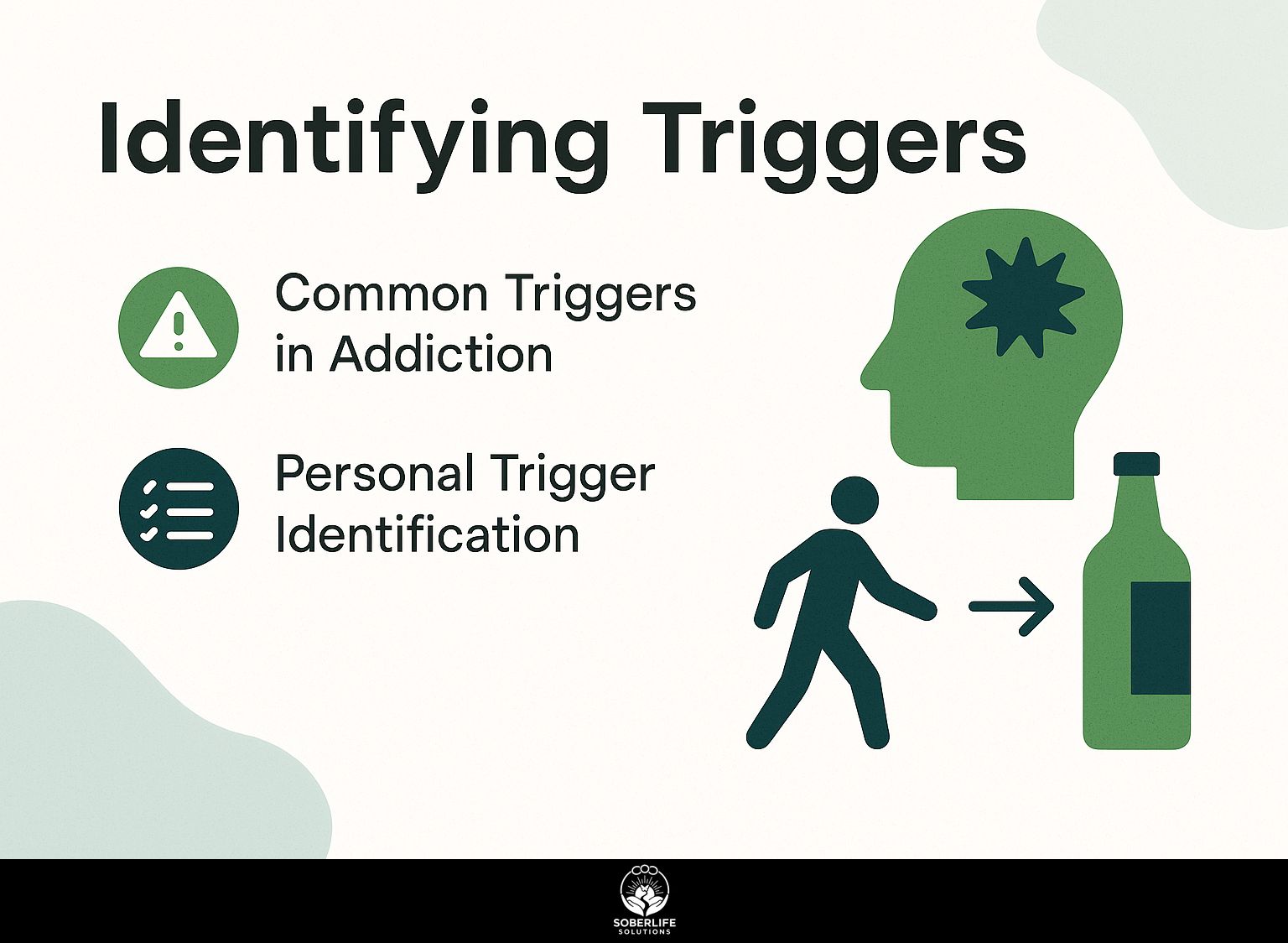
Knowing how specific emotions can lead to certain behaviors is key for developing mental strength and strategies to quit addiction.
Common Triggers in Addiction
Common triggers in addiction can include stress, social situations, and emotional distress, each necessitating targeted coping strategies.
Additional common triggers are:
- Boredom: Engaging in hobbies like painting or hiking can fill the void.
- Loneliness: Building a support network through local recovery groups can help.
- Environmental cues: Identify and avoid spaces associated with past use, such as certain bars or gatherings.
Statistics show that approximately 70% of relapses are linked to these identified triggers. Knowing and dealing with these issues with specific responses is key for long-term recovery success.
Personal Trigger Identification
Finding what personally sets you off involves thinking about your own feelings, keeping track of emotions, and talking openly to improve the recovery process.
A practical approach is to maintain a trigger diary. Start by noting down instances when you feel strong emotions throughout the day-include the context, your feelings, and possible triggers.
For example, if stress arises after certain interactions, write that down. Review your entries weekly to identify recurring themes or patterns, such as specific situations or people that consistently provoke strong reactions.
This clarity can guide you in developing coping strategies, allowing you to address the root causes of your emotional responses more effectively.
Emotional Awareness
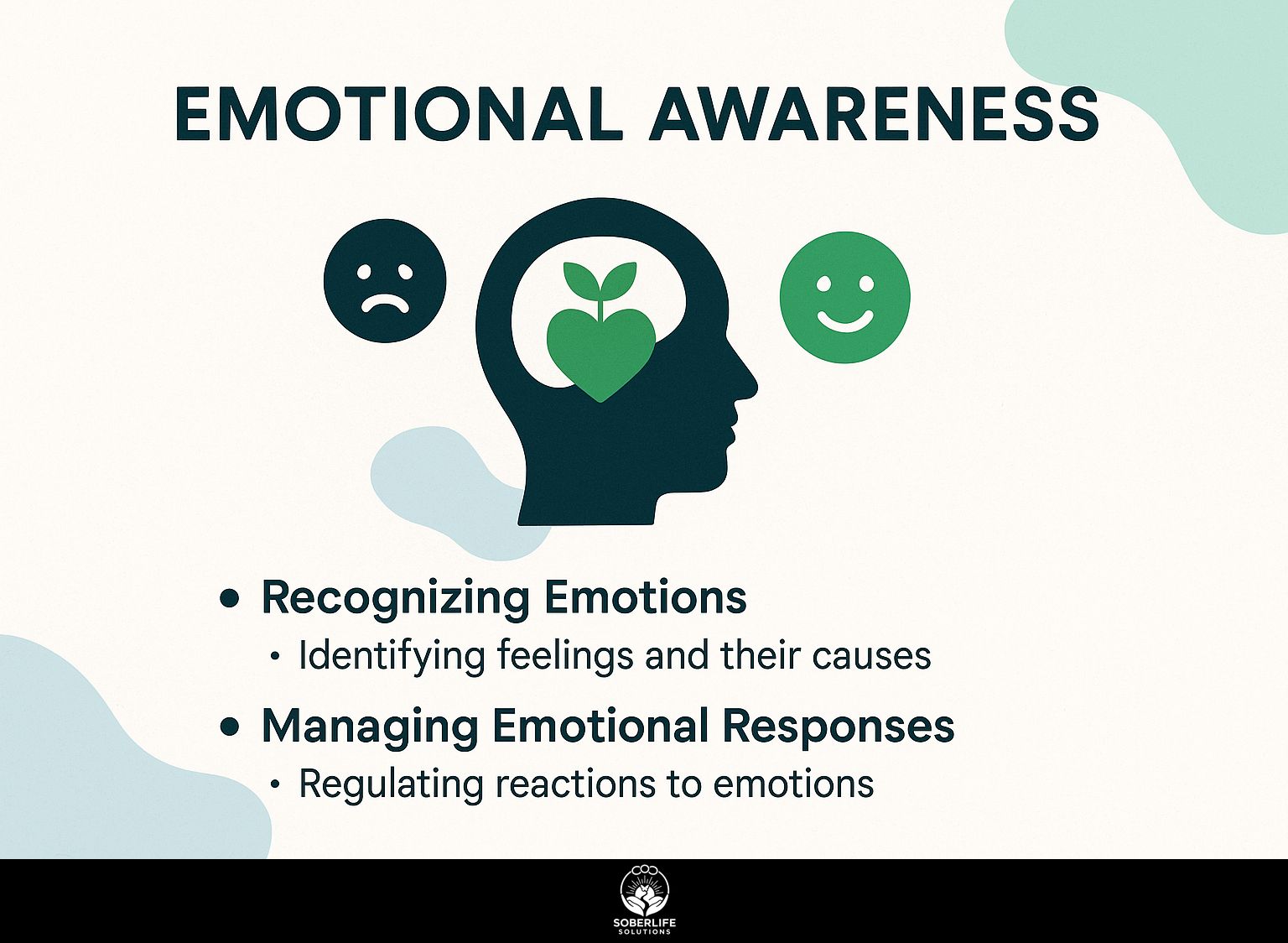
Recognizing emotions is important for managing reactions and feelings during addiction recovery. This approach aligns with the principles outlined in our guide on handling emotional triggers to maintain progress.
Recognizing Emotions
Developing the ability to recognize emotions is foundational for effective coping and can substantially reduce the risk of relapse.
To better understand emotions, try using tools like the ‘Feelings Wheel,’ which visually shows different emotions and their details.
Start by spending a few minutes each day reflecting on how you feel and labeling those emotions.
Practicing emotional vocabulary exercises can expand your descriptive range, allowing for better self-identification.
Writing an emotion journal to track daily feelings and their causes can help you understand yourself better and manage your emotions more effectively.
Managing Emotional Responses
Handling emotional reactions involves using techniques like mindfulness, CBT, and DBT, which are key in the recovery process.
Using these methods daily can make you emotionally stronger.
For example, apps like Headspace can help you practice mindfulness with guided meditations. Cognitive Behavioral Therapy (CBT) is effective in reducing anxiety; studies indicate it can lower symptoms by up to 60% when practiced consistently.
Dialectical Behavior Therapy (DBT) focuses on emotional regulation and interpersonal effectiveness, with resources like ‘The DBT Skills Workbook’ available for personal use. Joining local classes or online workshops can improve your skills in handling emotions well.
Building a Support System
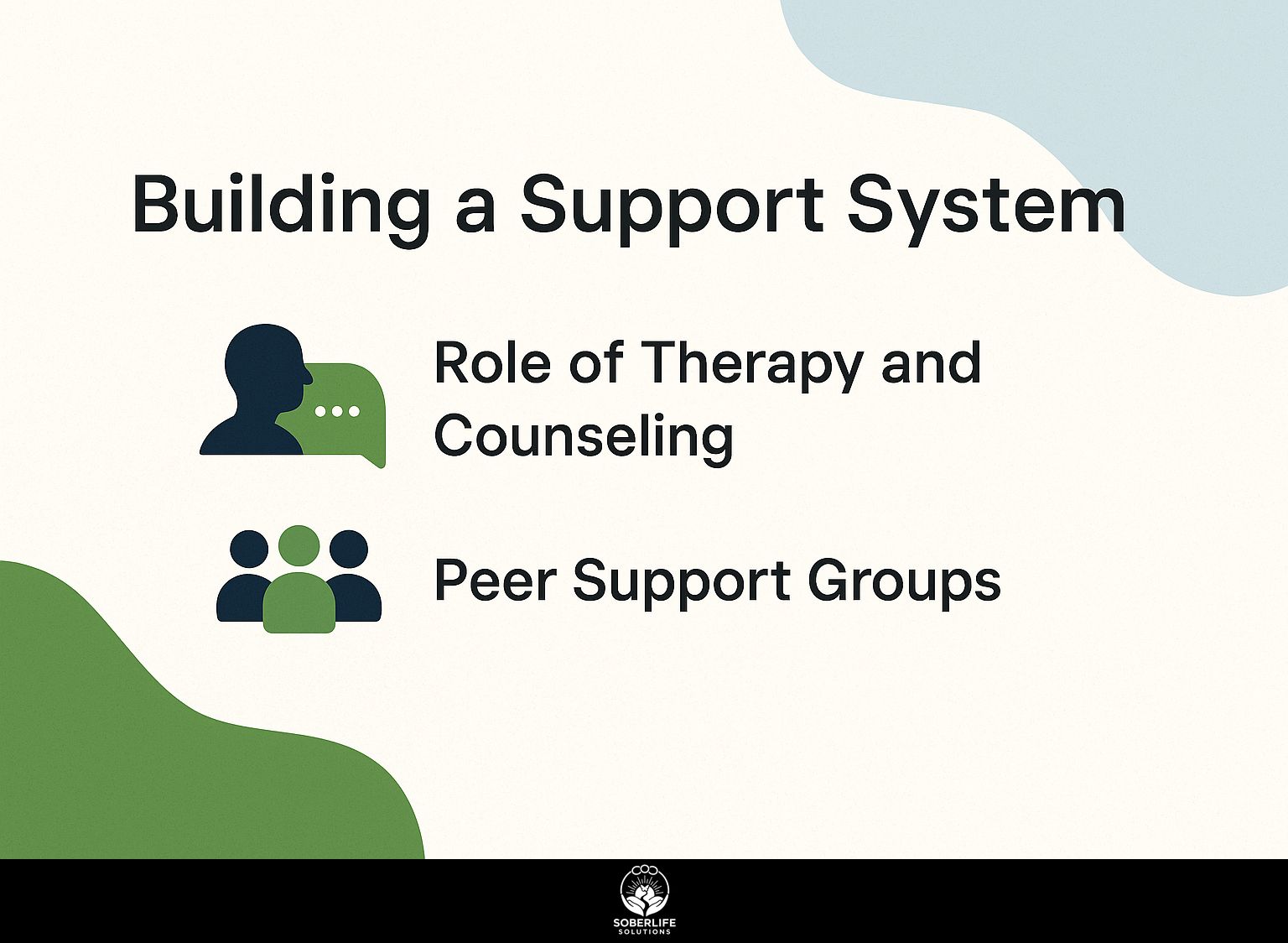
A strong support system greatly improves the recovery process, providing emotional and practical help during difficult times.
Role of Therapy and Counseling
Programs like CBT and DBT offer organized help to improve self-awareness and coping skills during recovery.
Many studies, like one in the Journal of Substance Abuse Treatment, show that going to therapy can improve recovery success rates by up to 50%.
For example, Cognitive Behavioral Therapy (CBT) helps individuals identify and challenge negative thought patterns, while Dialectical Behavior Therapy (DBT) focuses on emotional regulation and interpersonal effectiveness. Local resources like the Behavioral Health Center of [Your City] offer both CBT and DBT group sessions.
Getting therapy can greatly help with lasting results and develop better ways to handle stress.
Peer Support Groups
Support groups like NA and AA provide a shared healing space where participants hold each other accountable and relate to one another.
These groups offer important emotional help. Studies show that 75% of participants feel less alone and more encouraged in their recovery process.
Examples of local resources include meeting directories like Alcoholics Anonymous online or the National Alliance on Mental Illness (NAMI), which offer lists of nearby gatherings.
Websites like Reddit and Facebook offer online support groups, allowing people to connect and share their experiences from anywhere and at any time.
Setting Goals for Recovery
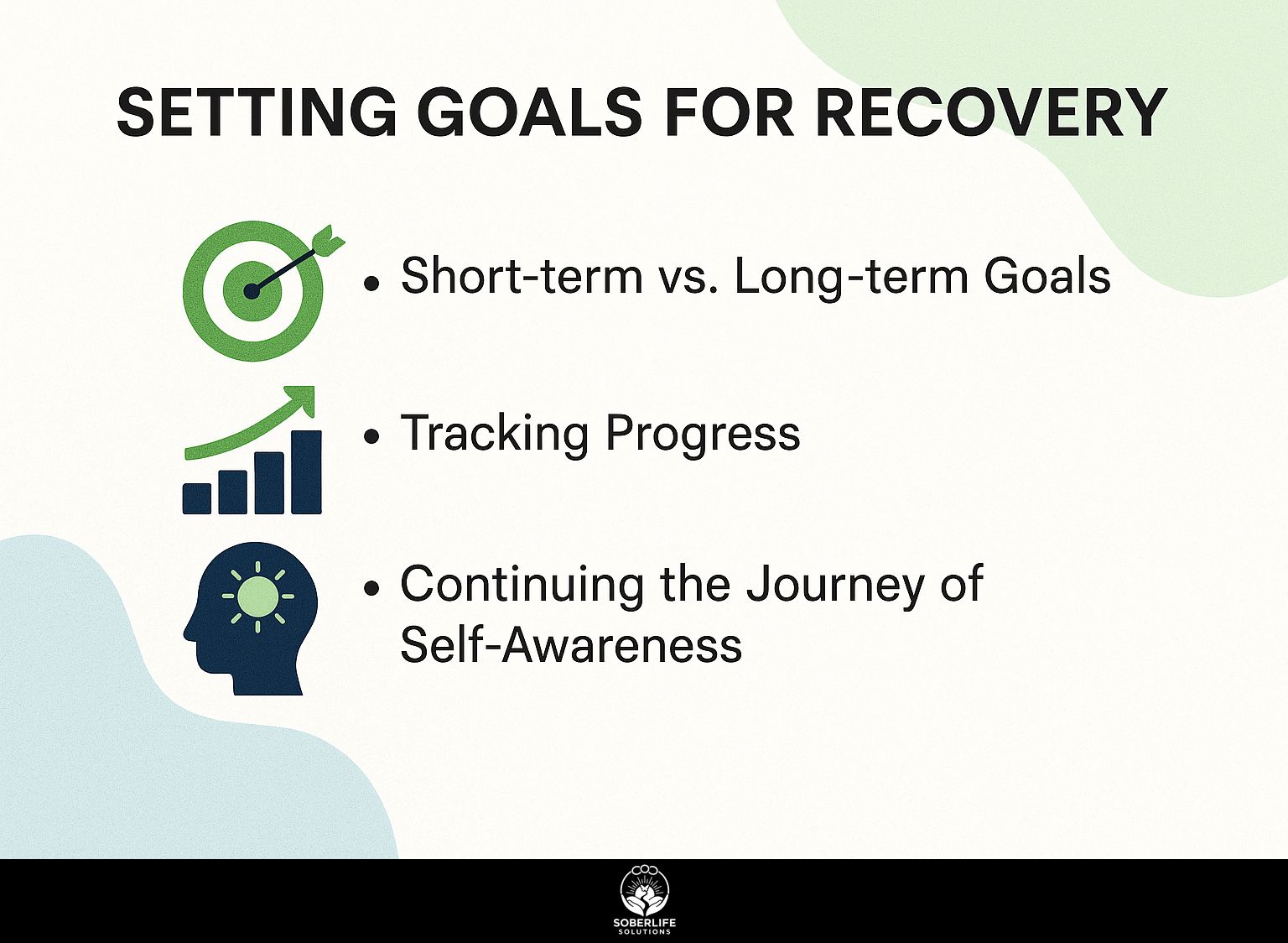
Having clear goals is important for staying motivated and focused during recovery, helping to achieve real progress. Understanding how to communicate feelings effectively can be essential to this process, as it fosters better self-awareness and support networks. To learn more about techniques for expressing emotions, explore our guide on how to communicate feelings for recovery.
Short-term vs. Long-term Goals
Setting goals for now and later helps people plan their recovery in a practical and sensible way.
-
Short-term goals are actionable steps that can be achieved within days or weeks, such as attending a weekly support group or completing a self-help book.
-
Long-term goals, on the other hand, might focus on achieving a certain level of independence or maintaining sobriety for a full year.
To set these goals, use the SMART approach: ensure your goals are clear, measurable, doable, essential, and time-bound.
For instance, instead of saying ‘improve health,’ a specific goal would be ‘work out for 30 minutes, five days a week for the next month.’ This clear aim keeps you motivated and focused.
Tracking Progress
Regularly checking your progress in recovery helps you understand yourself better, stay motivated, take responsibility, and build good habits.
Consider using tools like Habitica for gamified tracking or a simple progress journal for daily reflections. Use specific measurements, like mood scores or days since last relapse, to help show your progress.
Setting achievable goals, like journaling three times a week, provides tangible checkpoints. Regularly review your entries to identify patterns, adjust strategies, and celebrate milestones.
This helps keep you motivated and builds a sense of community if you share it with a support group or therapist, which improves your recovery experience.
Continuing the Path of Self-Knowledge
Learning about ourselves is an ongoing task that requires continuous effort and commitment to better oneself and grasp emotions more clearly.
To develop self-awareness, try using activities like writing in a journal or meditating.
For instance, set aside ten minutes daily to write about your thoughts and feelings, which can reveal patterns in your emotional responses. Tools like the Mindfulness App can guide meditation sessions, enhancing your ability to observe your thoughts without judgment.
Listening to comments from reliable friends or coworkers can give you new views on your actions. Online courses in emotional intelligence can provide organized instruction to help you learn more about self-awareness methods.
Frequently Asked Questions
What is self-awareness and why is it important in addiction recovery?
Self-awareness is the ability to recognize and understand one’s own thoughts, feelings, and behaviors. In addiction recovery, this is important because it helps people recognize what sets off their addiction, understand the root problems, and make changes to prevent falling back into old habits.
How can one develop self-awareness in addiction recovery?
Developing self-awareness in addiction recovery starts with being honest with oneself and being open to self-reflection. Practices such as mindfulness, therapy, and journaling can also help to increase self-awareness.
What are some benefits of being self-aware in addiction recovery?
Recognizing your own thoughts and behaviors during recovery can help you better understand your addiction and the reasons behind it. It can help people notice trends and make healthy changes, leading to a more satisfying and lasting recovery process.
Is self-awareness a one-time achievement in addiction recovery?
No, self-awareness is an ongoing process that requires continuous effort and practice. As people grow and change, they can become more aware of themselves, which can lead to a more meaningful process of recovery.
What are some obstacles that can hinder self-awareness in addiction recovery?
Certain defense mechanisms, such as denial and rationalization, can create barriers to self-awareness in addiction recovery. Fear and shame can also prevent individuals from being completely honest and open with themselves.
Can self-awareness help prevent relapse in addiction recovery?
Yes, self-awareness can be a powerful tool in preventing relapse. By knowing what sets them off, noticing early signs, and deliberately choosing to steer clear of harmful actions, individuals can rely on self-awareness to stay on track and avoid falling back into old habits.


